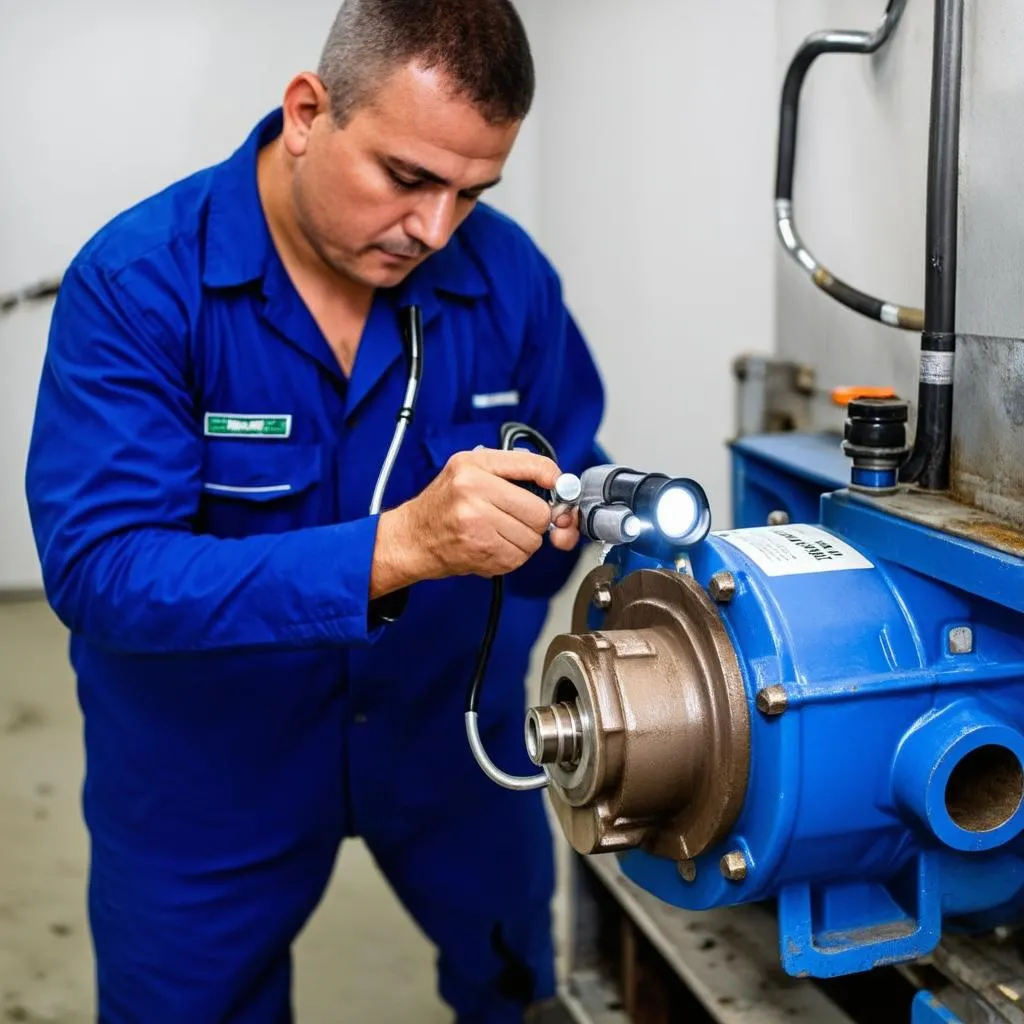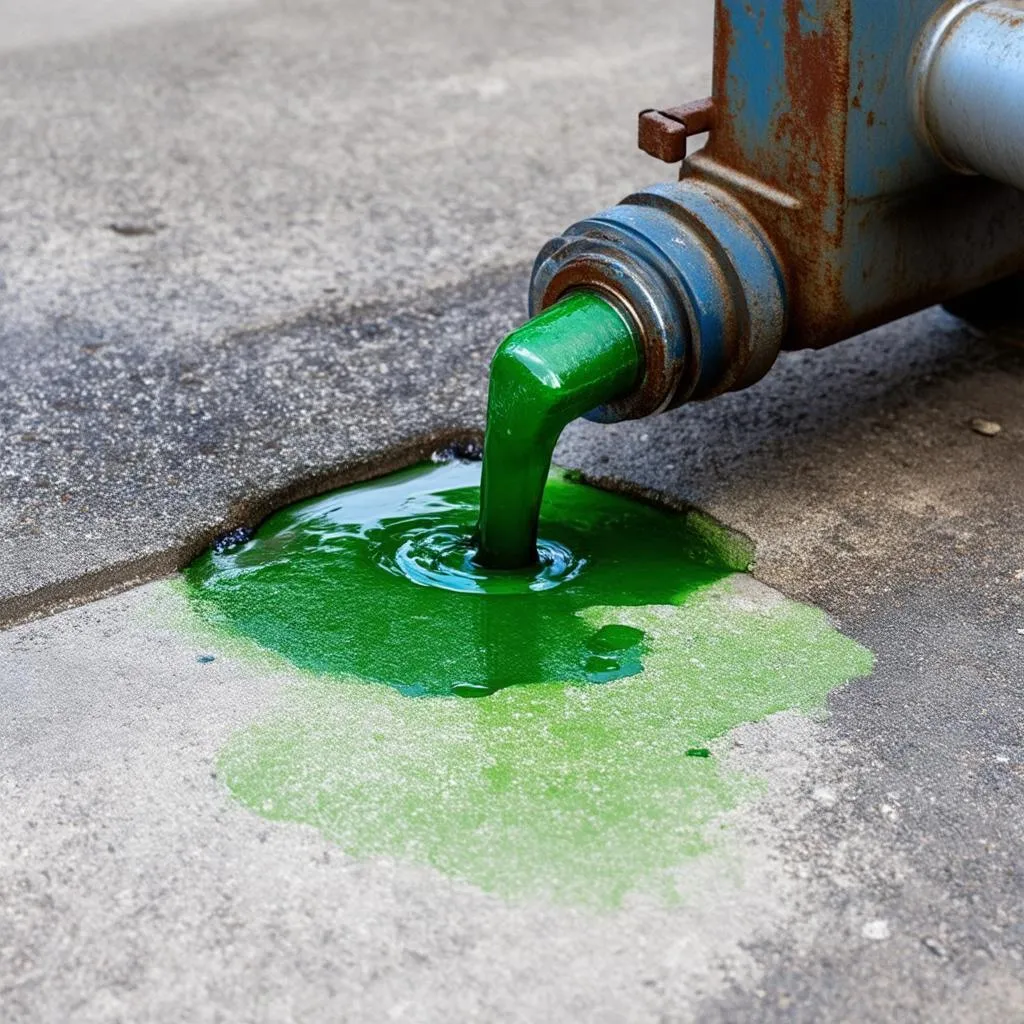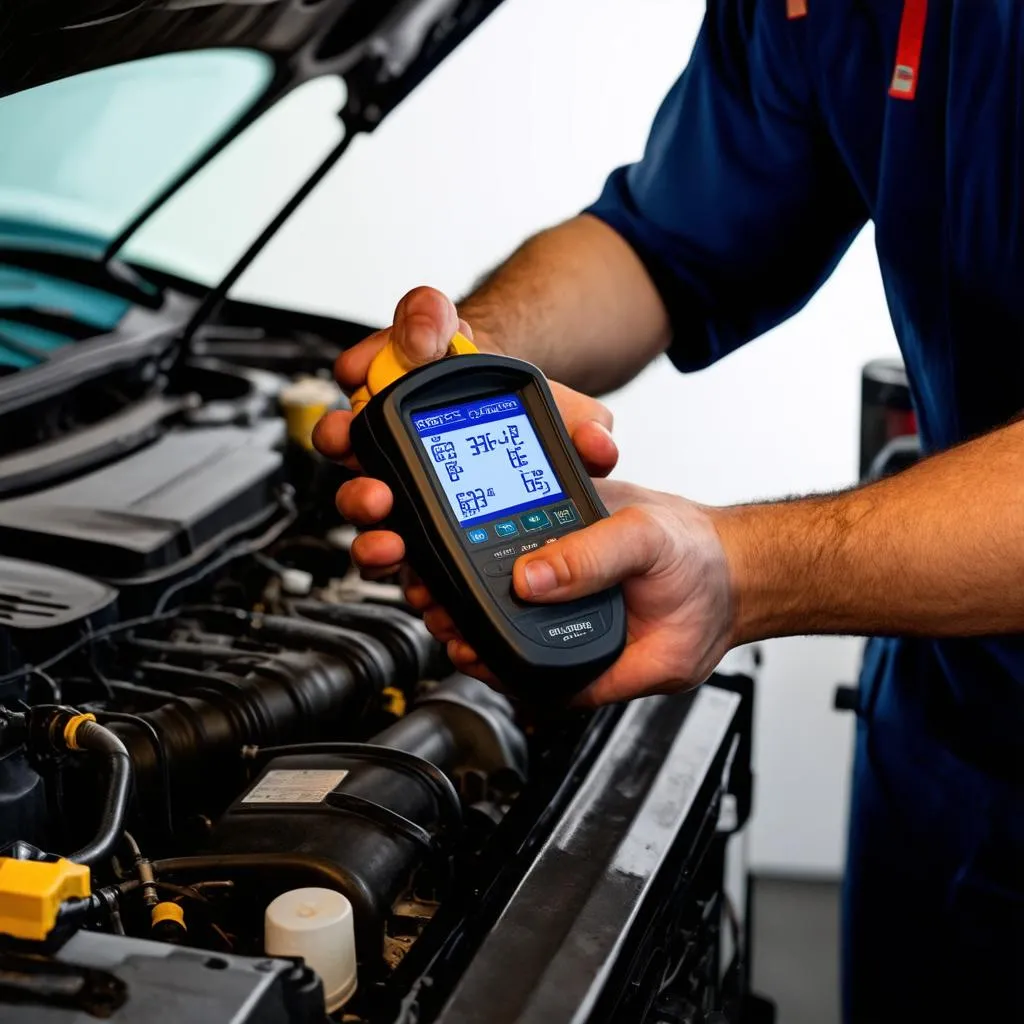Have you ever wondered if you could use your trusty OBD2 scanner to diagnose a water pump problem? It’s a question that many car owners ask, especially those who are trying to troubleshoot issues on their own.
The Importance of a Healthy Water Pump
Imagine your car’s engine as a powerful furnace. The water pump is the heart that keeps it cool, circulating coolant through the system to prevent overheating. A failing water pump can lead to serious engine damage, leaving you stranded and facing costly repairs.
Why You Can’t Test a Water Pump With an OBD2 Scanner
Here’s the thing: OBD2 scanners are primarily designed to communicate with the engine control module (ECM) and retrieve diagnostic trouble codes (DTCs). These codes signal potential issues with various engine systems, but they don’t directly assess the mechanical health of components like the water pump.
What OBD2 Scanners Can Tell You
- Engine temperature: OBD2 scanners can read engine temperature readings, which might reveal overheating issues that could indicate a problem with the water pump.
- Coolant level: Some newer vehicles equipped with advanced sensors might provide information about coolant levels, although this is not a common feature across all vehicles.
The Limitations of OBD2 Scanners
- Mechanical inspection: OBD2 scanners cannot directly inspect the physical condition of the water pump, such as leaks, worn bearings, or impeller damage.
- Specific component diagnosis: OBD2 scanners are not designed to diagnose specific components like the water pump. They focus on broader engine system issues.
How to Diagnose a Faulty Water Pump
To effectively diagnose a water pump problem, you need to rely on a combination of visual inspection and sound analysis:
- Visual Inspection: Look for signs of coolant leaks around the water pump housing. Inspect the belt driving the water pump for wear and tear.
- Sound Analysis: Listen for any unusual noises coming from the engine area, such as a grinding or whining sound. These could indicate a faulty water pump bearing.
Additional Tips for Diagnosing Water Pump Issues:
- Feel the hoses: Touch the coolant hoses near the water pump. If they are excessively hot, it could indicate a problem with the water pump’s ability to circulate coolant effectively.
- Check for overheating: Monitor the engine temperature gauge. If it rises abnormally, it could be a sign of a failing water pump.
What if Your OBD2 Scanner Shows Overheating?
If your OBD2 scanner detects overheating, it’s a strong indication that you need to investigate further. While it may not be the water pump, it’s essential to address the problem promptly to prevent further damage to your engine.
Why is it important to maintain a good water pump?
Think of the water pump as the heart of your car’s cooling system. Just like the heart pumps blood to keep your body functioning, the water pump circulates coolant throughout the engine to prevent overheating.
Here’s why maintaining a good water pump is crucial:
- Prevents engine damage: A faulty water pump can lead to engine overheating, which can cause serious damage to vital engine components.
- Increases fuel efficiency: A well-functioning water pump ensures optimal engine temperature, contributing to improved fuel efficiency.
- Ensures smooth performance: A healthy water pump allows the engine to operate at the correct temperature, resulting in smoother performance and reduced wear and tear.
- Reduces emissions: A properly functioning cooling system helps reduce harmful emissions from the engine.
What are some common signs of a failing water pump?
- Coolant leaks: Look for any drips or puddles of coolant under the engine, especially near the water pump.
- Unusual noises: Listen for any grinding, whining, or squealing sounds coming from the engine area. These noises could indicate a failing water pump bearing.
- Overheating: If the engine temperature gauge starts to climb, it could be a sign that the water pump is not circulating coolant effectively.
- Reduced performance: A failing water pump can lead to a loss of engine power or sluggish acceleration.
- Visible damage: Visually inspect the water pump for any signs of damage, such as cracks, leaks, or wear on the impeller.
Can a water pump be repaired?
In some cases, a water pump can be repaired. However, most modern water pumps are designed to be replaced as a unit. If your water pump is failing, it’s generally more cost-effective and reliable to replace it rather than attempting a repair.
What are some alternative ways to diagnose a water pump problem?
- Infrared thermometer: You can use an infrared thermometer to measure the temperature of the coolant hoses. A significant temperature difference between the inlet and outlet hoses could indicate a problem with the water pump.
- Pressure test: A pressure test can help identify leaks in the cooling system, including leaks from the water pump.
- Visual inspection with a borescope: A borescope can be used to visually inspect the impeller and other components of the water pump without removing it.
What are some related questions?
- How long does a water pump last?
- What are the symptoms of a bad water pump?
- How much does it cost to replace a water pump?
- What are the best water pump brands?
- How do I replace a water pump on my own?
What are some related products?
- OBD2 scanners
- Infrared thermometers
- Coolant leak detectors
- Water pump replacement kits
- Coolant hoses
What are some vehicle brands that require water pump replacements?
Water pump replacements are necessary for all vehicles, regardless of brand. However, the frequency and severity of water pump problems can vary depending on the model and year of the vehicle.
- European Cars: European cars often have more complex cooling systems and require more frequent water pump replacements.
- Japanese Cars: Japanese cars tend to have more reliable water pumps, but they may still require replacement at some point in their lifespan.
- American Cars: American cars generally have reliable water pumps, but they may also require replacement over time.
Need Help?
If you’re struggling to diagnose a water pump issue or need assistance with any automotive repair, don’t hesitate to reach out. Our team of experienced technicians is available 24/7 to provide expert advice and support.
 water pump diagnosis
water pump diagnosis
 coolant leak
coolant leak
 obd2 diagnostic tool
obd2 diagnostic tool
Conclusion
While your OBD2 scanner may not be able to directly test your water pump, it can provide valuable clues about overheating issues. Remember, a healthy water pump is essential for the longevity and smooth performance of your car. Keep an eye out for the warning signs, and don’t hesitate to consult with a trusted mechanic if you suspect any problems.
Don’t forget to share your experiences with water pump issues in the comments below!